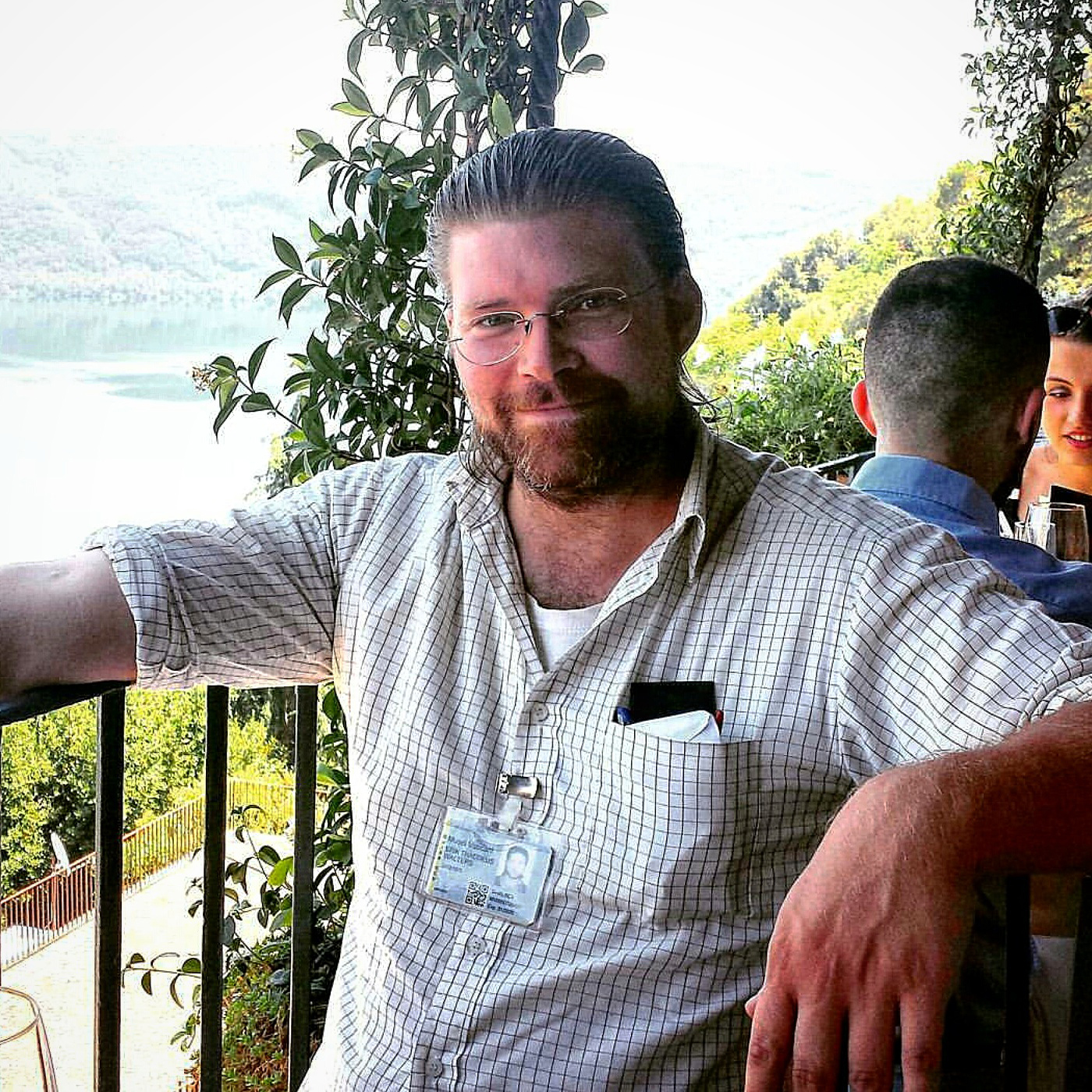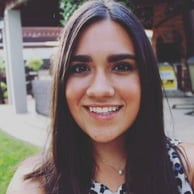

In the spring of 2015 I decided to take a class that was not at all part of my degree’s curriculum. I am studying International Business, but since I'm in Rome, I decided to take a class on religion, just to learn a bit more about it. Of all the classes offered, I was very interested in the Popes of Rome course. This turned out to be one of the most interesting classes I have taken in my four years of university. It was not at all the typical class: go to class, take notes, memorize, take an exam. Instead, it helped me to improve my critical thinking as well as invoked a desire to learn more. Professor Walters is a very knowledgeable person with an interesting background. I decided to interview him; I hope you find it interesting, and I urge you to take his class if you can!
Q: Where are you from?
A: Mars. No, seriously, I was born in Atlanta, Georgia, in the US. My father’s work and my own education found me living in several places in the US: Tennessee, Washington, D.C., Ohio, Alabama, Louisiana, New Jersey, Missouri, Pennsylvania, New York, Puerto Rico, and the U.S. Virgin Islands. I never made it to California. I have been in Europe now for twenty years, and I have not been back to the US in over ten years.
Q: What do you teach, how long have you been teaching, and what is your specialty?
A: I am about to begin my seventh year of teaching undergraduate students at various programs in Rome, primarily at JCU. I teach courses in ancient Roman history, medieval history, history of the popes and the Catholic Church, comparative world religions, and Latin. My specialty? Rome and the Vatican (or as I like to call it: “Vatiland”), among other things.
Q: Where and what did you study?
A: I received a B.A. double major in Latin, Greek, and Philosophy at a small liberal arts college in the US. Later, I completed several postgraduate degrees in fields covering patristic sciences, cultural heritage management, art history, archaeology, graphic design, and theology in Italy. I finished my Ph.D. at the University of Vienna in Austria in Classical Philology, which is where this particular academic discipline formally began… I am told I'm the only US citizen to have ever done so.
Q: Were you planning to become a university professor?
A: I was the only four-year-old I knew who wanted to become a paleontologist…and who knew what the word means. I wanted to pursue a number of things from a very young age. I was very interested in theatre, also. I suppose my primary ambition has always been exploring and learning, and then sharing that with anyone and everyone who is interested. My father gave me a book when I was six entitled “Tell Me Why” (probably to keep me occupied on long road trips). I was always an almost straight-A student. My only “less than satisfactory” grades in elementary school were in conduct (“needs improvement”). No, I was not “planning” to become a university professor.
Q: How did you end up here?
A: JCU offered a position teaching courses in Classics (Latin) and Religious Studies (History of the Catholic Church) while I was completing a degree in graphic design in Rome and defending my doctoral thesis in Vienna, Austria. I applied. JCU interviewed me. JCU hired me. I began teaching at JCU in January of 2011.
Q: Have you taught anywhere else? If so, what is different about teaching here vs teaching at other universities?
A: I teach at a few other undergraduate programs in Rome, but my “home base” here is John Cabot. The primary difference is that my courses at JCU regularly have students not only from the US, but from China, Mexico, South America, Russia, Italy, and a variety of countries in Africa, the Middle East, and Eastern Europe. JCU is a melting pot. I love that!
Q: You teach religion. How do you keep up with all the news regarding religions all over the world?
A: I live in a cave with a dozen computer screens locked on to several global events at any given moment. Seriously, I do not play Pokémon-Go, I am not on Facebook, and I do not tweet. I am constantly researching and following current events on the internet, which is, perhaps, the greatest technological invention in human history and, sadly, the least tapped for productive purposes.
Q: Since we are at a moment when many terrorist attacks and conflicts are happening in the world, and religion often goes hand-in-hand with wars, how do you manage to transmit all of the knowledge and information to your students? Does this mean that every semester you have a different approach to how you teach?
A: I am constantly updating and modifying the course content and approach from semester to semester. Certain principles and threads remain constant, but the emphasis and presentation may vary.
Q: What is one thing that you have learned from being a professor at JCU?
A: I have a precious and unique responsibility and privilege in the world: teaching undergraduate students. Such a precarious position resulted in the execution (forced suicide) of Socrates in “democratic” Athens, Greece in the 4th century BCE. I have learned to take this very seriously.
Q: What do you want your students to learn from your classes besides the educational information they receive?
A: My job is not to “teach” students. My role is to assist students in developing that latest and greatest casualty of “higher education”, i.e. critical thinking and human persons equipped with the tools to think rationally for themselves. The material learned in my courses is important. Much more important is to develop the art of critical thinking. Learning to think for oneself rationally can be discomforting at times. To learn is to enter spaces that are not “safe”. Learning entails challenging oneself. The real world could not care less about providing trigger warnings. Any teacher who opines otherwise falls into that categorical cliché of “those who can, do. Those who can’t, teach.”
http://www.theatlantic.com/magazine/archive/2015/09/the-coddling-of-the-american-mind/399356/
[The picture above was taken at Castel Gandolfo, the Popes' summer residence since the 1600s and where the ancient Romans came from (Alba Longa). The photo is overlooking Lake Alban.]

Victoria Barreda de Alba
JCU Class of 2017
Hometown: Reynosa, Mexico




